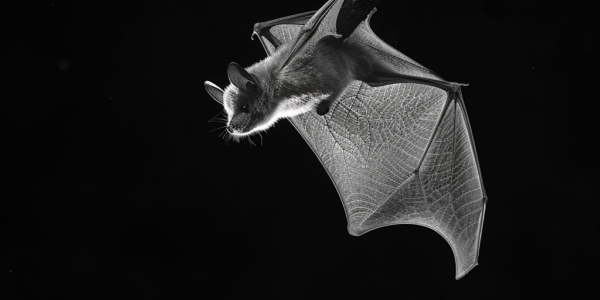New Typhoid Conjugate Vaccine Receives WHO Prequalification
The recent prequalification of the new typhoid conjugate vaccine, SKYTyphoid™, by the World Health Organization (WHO) marks a pivotal moment in global health, opening the doors for public procurement of the vaccine by UN organizations. Developed through collaboration and with funding support, SKYTyphoid™ represents a significant advancement in typhoid prevention, offering a safe and effective solution for infants and young children. The achievement of WHO prequalification for SKYTyphoid™ marks a significant step forward in global health, offering a promising solution for the prevention of typhoid and contributing to the accessibility of life-saving vaccines for vulnerable populations worldwide.
Mediterranean Diet and Cardiovascular Health Outcomes in Females
Researchers in Australia reviewed evidence on the Mediterranean diet and its impact on cardiovascular health outcomes in females. The study suggests that the diet may have cardioprotective benefits due to its effects on lipid profile, blood pressure, vascular function, oxidative stress, and inflammatory markers. Additionally, the article discusses sex-specific nutrition mechanisms and the relationship between the Mediterranean diet and biological sex in cardiovascular outcomes.
FDA Updates Nutrition Facts Label to Help Consumers Monitor Sodium Intake
The U.S. Food and Drug Administration (FDA) has updated the Nutrition Facts label for packaged foods to provide clearer information about sodium content. Over 70% of dietary sodium comes from packaged and prepared foods, contributing to health issues like high blood pressure. Consumers can use the label’s Daily Value (DV) for sodium to make informed food choices and manage their sodium intake. Specific food categories, such as deli meat sandwiches and pizza, contribute to a significant portion of sodium consumption. By being mindful of their food choices, consumers can take proactive steps to reduce their sodium intake and make healthier dietary decisions.
Dengue fever may be causing spontaneous erections, scientists say
Scientists in West Africa report that Dengue fever may be causing spontaneous erections that can last for hours, in addition to the virus’s other symptoms. A 17-year-old patient exhibited this embarrassing side effect, leading to the theory that the virus can infect blood vessels in the penis, causing plasma to leak and priapism to occur.
Habits to Prevent Memory Decline in Aging Individuals
Learn about the detrimental habits that can lead to memory decline in aging individuals, and discover the science-backed strategies to prevent memory loss. Find out how multitasking, lack of quality sleep, and engaging in monotonous activities can impact memory, and learn practical tips to enhance memory retention as you age.
The Potential Health Benefits of the Atlantic Diet
Discover the potential health benefits of the Atlantic diet, a traditional diet from northwest Spain and Portugal. Similar to the Mediterranean diet, it includes fresh fish, seasonal vegetables, legumes, whole grains, dairy, and moderate wine consumption. A recent study suggests that the Atlantic diet may reduce the risk of metabolic syndrome, while emphasizing the importance of limiting red meat consumption and opting for plant-based protein alternatives like legumes.
Rabies Alert: Bat Found in Laurel Tests Positive for Rabies
Rabies alert issued in Laurel after bat tests positive for rabies. Residents urged to determine if children had contact with the bat. Preventive treatment may be necessary for those exposed. Contact Anne Arundel County Department of Health for further information and assistance.
INTEGRA Biosciences Supports HilleVax’s Norovirus Vaccine Development
INTEGRA Biosciences has awarded 50 EVOLVE manual pipettes, GRIPTIPS® pipette tips, and lab accessories to HilleVax to support its norovirus vaccine development. The prize will accelerate the vaccine candidate to licensure, aligning with INTEGRA’s commitment to advancing healthcare and laboratory technology.
Study Suggests Individuals with ADHD-like Traits May Have Evolutionary Foraging Advantage
A new study suggests that individuals with ADHD-like traits may have an evolutionary advantage when it comes to foraging for food in the wild. The research indicates that people with attention deficit hyperactivity disorder (ADHD) characteristics, such as difficulty regulating their attention and restlessness, exhibit better foraging strategies compared to those with neurotypical traits. Neuroscientist David Barack and his team conducted an experiment involving 457 participants, revealing that individuals without ADHD tended to stay too long at a berry bush, resulting in suboptimal foraging. On the other hand, those with ADHD-like traits were more likely to leave a patch sooner and less likely to exploit any one berry bush, ultimately collecting more berries overall.
Measles Cases on the Rise in the United States Despite Widespread Vaccine Availability
Measles cases are on the rise in the United States, reflecting a decline in vaccine confidence, despite the availability of a life-saving vaccine. Recent reports confirm multiple cases of measles among children in Broward County, Florida, with concerns raised over the state’s Surgeon General’s statements potentially undermining the use of vaccines. The CDC has issued an alert to clinicians urging vigilance, as most cases were identified in unvaccinated children and adolescents. Experts emphasize the need for high vaccination coverage to prevent future outbreaks of preventable diseases.










